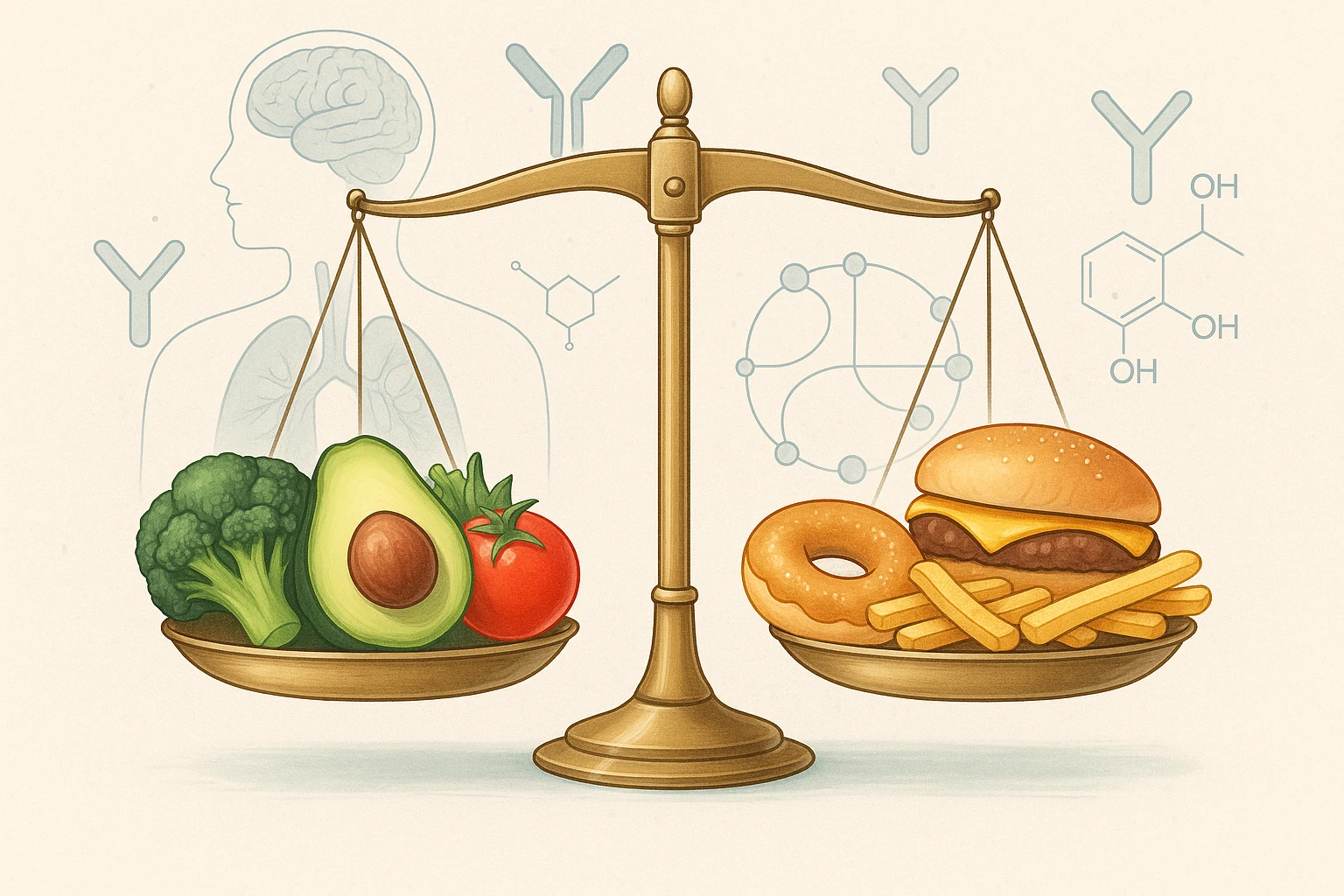The Role of Hormones and Metabolism in Fatigue After Eating
Postprandial Fatigue: Causes and Mechanisms
Postprandial fatigue, also known as fatigue after eating, is a common phenomenon that many individuals experience. It is characterized by tiredness and lethargy following meals and can vary in intensity, from mild drowsiness to significant exhaustion. While this condition is often temporary, its underlying causes can range from normal physiological processes to more complex metabolic or hormonal disruptions.
Understanding the mechanisms behind postprandial fatigue is crucial, as it can impact daily activities and overall well-being. Factors such as meal composition, meal size, and individual health conditions play a key role in the severity of this condition. Postprandial fatigue is not merely a result of overeating but a multifactorial process that requires attention in both clinical research and patient care.
Mechanisms Behind Postprandial Fatigue
Postprandial fatigue is influenced by multiple physiological processes, including inflammation, hormonal changes, and neuroendocrine responses. These factors interact in complex ways, contributing to the feeling of tiredness after eating. While some individuals may experience only mild fatigue, others may feel more pronounced tiredness after meals.
Inflammatory Responses and IL-1
Inflammation plays a significant role in regulating postprandial fatigue. Specifically, cytokines like interleukin-1 (IL-1) are released in response to food intake, particularly after high-fat meals. IL-1’s action influences the brain’s regulation of sleepiness and energy conservation, contributing to feelings of fatigue following meals.
Hormonal and Neuroendocrine Mechanisms
Hormonal changes, including the rise in insulin levels after eating, significantly impact postprandial fatigue. Insulin, glucagon, and cortisol all contribute to energy regulation during digestion, with high-fat meals leading to more pronounced hormonal responses that increase sleepiness. These hormones affect brain activity, creating feelings of fatigue after eating.
Meal Composition and Its Impact on Fatigue
The composition and form of a meal are key factors in determining postprandial fatigue. While macronutrient content matters, the form of the meal-whether solid or liquid-has a more significant impact on the severity of fatigue experienced.
Solid vs. Liquid Meals
Solid meals tend to cause more pronounced postprandial sleepiness compared to liquid meals. Solid foods take longer to digest, requiring more energy and causing greater blood flow diversion to the digestive system. This process results in higher fatigue levels. On the other hand, liquid meals are typically absorbed more quickly, resulting in less disruption to energy balance and lower levels of fatigue.
Macronutrients and Fatigue
Although meal form plays a major role, the specific macronutrient content of a meal-whether high in fats, carbohydrates, or proteins-does not seem to significantly alter the level of postprandial fatigue. Both high-fat and high-carbohydrate meals can lead to similar feelings of tiredness, with meal form being the primary contributor to fatigue levels.
Obesity and Postprandial Fatigue
Obesity can exacerbate postprandial fatigue due to altered metabolic and hormonal responses. Individuals with excess body weight often experience increased tiredness following meals, and the recovery from fatigue is slower compared to individuals without obesity. This section explores the metabolic and hormonal disruptions that contribute to heightened fatigue in obese individuals.
Metabolic Changes in Obesity
In obesity, excess adipose tissue leads to greater energy demands during digestion, diverting more blood flow to the digestive system. This reduces overall energy availability, contributing to fatigue after eating. Additionally, obesity is often associated with metabolic inefficiency, making it harder for the body to process food effectively, which can lead to prolonged fatigue after meals.
Hormonal Disruptions
Obesity also leads to hormonal imbalances that exacerbate fatigue. Insulin resistance is common in obese individuals, reducing the efficiency of glucose regulation and increasing postprandial fatigue. Furthermore, leptin, which normally regulates appetite and energy balance, may become less effective in obesity, contributing to an imbalance in energy regulation. Elevated cortisol levels, often seen in obesity, can also increase fatigue and disrupt normal energy balance following meals.
Diagnosis and Management of Postprandial Fatigue
Diagnosing and managing postprandial fatigue involves evaluating contributing factors such as meal composition, obesity, and underlying medical conditions. Effective management requires both accurate diagnosis and the implementation of lifestyle, dietary, and possibly pharmacological interventions to reduce fatigue and improve quality of life.
Clinical Presentation and Differential Diagnosis
Postprandial fatigue is characterized by tiredness, lethargy, and reduced energy following a meal. Symptoms typically emerge within 30 minutes to an hour after eating and can last several hours. Fatigue may vary in intensity, ranging from mild drowsiness to more profound exhaustion. It is important to distinguish postprandial fatigue from other causes of daytime tiredness, such as sleep disorders (e.g., sleep apnea, insomnia), chronic fatigue syndrome, or metabolic conditions like diabetes. A thorough medical history, physical examination, and screening for comorbid conditions are essential to ensure an accurate diagnosis and to rule out other potential causes of fatigue.
Dietary and Lifestyle Modifications
- Consuming smaller, more frequent meals can help prevent overwhelming fatigue after large meals.
- Focusing on balanced meals that combine complex carbohydrates, lean proteins, and healthy fats helps stabilize blood glucose levels and prevent energy dips.
- Eating earlier in the day or avoiding heavy meals late at night can reduce post-meal fatigue.
- Regular physical activity and adequate hydration support energy balance and help reduce fatigue after eating.
- Stress management and improving sleep hygiene are crucial for managing overall tiredness.
Medical Interventions
In some cases, medical interventions may be required to manage postprandial fatigue. For individuals with obesity or insulin resistance, pharmacological treatments targeting metabolic imbalances, such as metformin or other insulin-sensitizing agents, may be prescribed to improve energy regulation and reduce fatigue. Addressing any underlying conditions, such as sleep apnea or thyroid dysfunction, is also important for alleviating symptoms. While medications can help manage the underlying causes of fatigue, lifestyle and dietary changes remain the cornerstone of postprandial fatigue treatment.
Prevention and Long-Term Management of Postprandial Fatigue
Preventing and managing postprandial fatigue in the long term requires a combination of sustainable dietary and lifestyle habits. By adopting preventive strategies and maintaining regular monitoring, individuals can reduce the occurrence of fatigue after meals and improve overall energy levels. This section discusses key strategies for prevention and long-term management.
Lifestyle and Dietary Strategies for Prevention
- Regular physical activity: Moderate aerobic exercises improve overall energy balance and enhance metabolic efficiency, reducing fatigue after eating.
- Balanced diet: Meals should include a mix of complex carbohydrates, lean proteins, and healthy fats to stabilize blood glucose levels.
- Frequent, smaller meals: Consuming smaller meals more frequently can prevent large fluctuations in blood sugar that may lead to fatigue.
- Hydration and healthy eating: Ensuring adequate hydration and limiting processed or sugary foods can prevent excessive tiredness after meals.
Monitoring and Ongoing Evaluation
Ongoing monitoring and evaluation are essential for managing postprandial fatigue over time. Regular check-ins with healthcare professionals can help assess the effectiveness of dietary and lifestyle interventions. Adjustments may be necessary to address changes in weight, physical activity levels, or overall health. Individuals should track their energy levels and meal patterns to identify any triggers of fatigue. Moreover, it is important to reassess underlying conditions, such as metabolic disorders or obesity, that may influence fatigue levels. By maintaining an open dialogue with healthcare providers, individuals can ensure that their strategies for managing postprandial fatigue remain effective and adaptable.
- Postprandial fatigue is influenced by inflammation, hormonal changes, and neuroendocrine responses.
- IL-1, an inflammatory cytokine, regulates postprandial fatigue.
- High-fat meals induce postprandial sleepiness via hormonal and neuroendocrine mechanisms.
- Obesity can worsen postprandial fatigue due to altered metabolic and hormonal responses.
- Solid meals cause more pronounced postprandial sleepiness compared to liquid meals.
- Meal form, not nutrient content, plays a key role in postprandial fatigue.
- Effective management of postprandial fatigue requires evaluating contributing factors, including obesity and meal composition.
- Postprandial fatigue management involves dietary and lifestyle interventions.
Frequently Asked Questions about Fatigue After Eating
- What causes postprandial fatigue?
- Postprandial fatigue is caused by factors like inflammation, hormonal changes, and neuroendocrine responses. These processes are triggered after eating, leading to tiredness.
- Does meal size affect postprandial fatigue?
- Yes, larger meals, especially those rich in fat, are more likely to cause pronounced fatigue after eating due to the increased energy demand for digestion.
- How do solid meals contribute to postprandial fatigue?
- Solid meals tend to cause more sleepiness compared to liquids, as they require more time and energy to digest, leading to greater blood flow diversion to the digestive system.
- Can obesity worsen fatigue after eating?
- Yes, obesity can exacerbate postprandial fatigue due to altered metabolic and hormonal responses, such as insulin resistance and increased cortisol levels.
- What lifestyle changes can help reduce fatigue after meals?
- Regular physical activity, smaller frequent meals, and balanced diets can help reduce postprandial fatigue. Staying hydrated and managing stress also contribute to overall energy balance.
- Is there a link between sleep disorders and postprandial fatigue?
- Yes, sleep disorders like insomnia or sleep apnea can contribute to fatigue after eating, as they disrupt overall rest and energy regulation, compounding tiredness after meals.
- Can postprandial fatigue be treated with medication?
- In some cases, medications like insulin-sensitizing agents may help manage postprandial fatigue, especially in individuals with obesity or insulin resistance.
- How can I manage postprandial fatigue long-term?
- Long-term management involves adopting sustainable dietary and lifestyle habits, such as regular exercise, meal timing adjustments, and continuous monitoring of health conditions that may contribute to fatigue.













